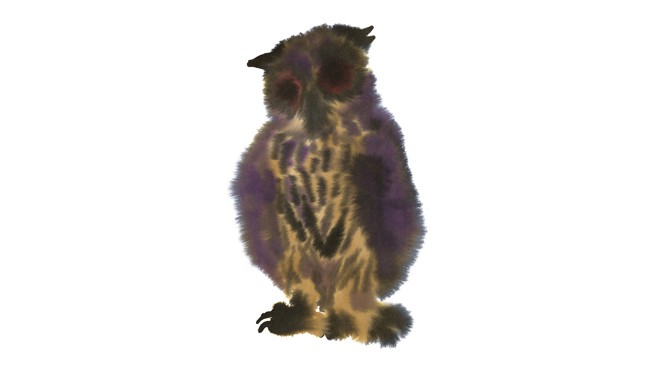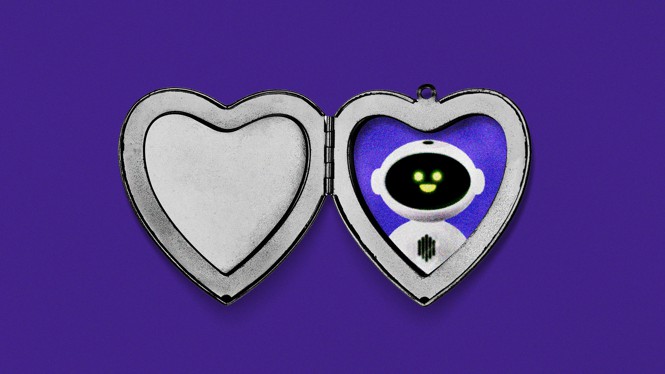A conversation with Jeffrey Goldberg about Washington Week With The Atlantic
This is an edition of The Atlantic Daily, a newsletter that guides you through the biggest stories of the day, helps you discover new ideas, and recommends the best in culture. Sign up for it here.
The Atlantic’s editor in chief, Jeffrey Goldberg, is the new moderator of the PBS program Washington Week, which will now be called Washington Week With The Atlantic. I talked with Jeff about this new partnership, which launches tomorrow night on PBS at 8 p.m. ET.
First, here are four new stories from The Atlantic:
A Preoccupation With Democracy
Tom Nichols: Washington Week and The Atlantic are both institutions in their own right. What’s the goal in joining them together for a program like this? Perhaps instead of saying “a program like this,” I should have started by asking what kind of program you envision.
Jeffrey Goldberg: I’m aiming for what I think is something Washington Week already does extremely well: I want to have discussions with the reporters who are actually reporting on the week’s events, so that viewers get a sense of not only what’s going on but how those stories are reported. We need time for more detailed conversations with the people who were there and who will tell us what happened. One of the great things about this program is that it allows people to speak in whole paragraphs, and I’m a big fan of paragraphs.
Tom: This is a new gig for you, right? You’ve never been a moderator.
Jeff: Right. I’ve been on a million panels on TV and at conferences—time I will never get back, alas—but this is my first outing as a moderator. So my suggestion is that you watch, simply to see if I’m able to read from a teleprompter. The jury is out on that question.
Tom: So now that you’re going to be on the other side of the desk, how do you plan to run the show? What will the format look like?
Jeff: I hate to make things sound so simple, because, as you know, I’m a complicated guy. But the goal here is to find the best minds in the press and let them analyze what’s going on. I want people to feel like they’ve actually learned something after they watch this.
Tom: Well, I don’t think it’s simplistic, but it sounds like a callback to an older, more conversational tradition of news programs in the pre-cable age.
Jeff: To some extent, it is. Some television news and public-affairs programs have become too frenetic for my taste. The audience is bombarded with lights and buzzers during short segments where six or seven people—or more—are trying to make a point as quickly as possible. And some of those people are partisan hacks. A group of journalists having an actual conversation is rare on television now, and we’re going to take the time to have those more patient conversations.
Tom: But isn’t that what viewers want—flash and movement?
Jeff: Look, there are a lot of people in this country. Some people want TikTok; some people want The Atlantic. Some people want both. Not you or me, necessarily—although you are something of a TikTok star, of course. But I’m sure there’s a Venn overlap. At The Atlantic, we know our readers have a solid attention span. So does the audience for Washington Week and PBS NewsHour. And look at how many people will listen to long podcasts and read long articles. There’s plenty of space for the kind of detailed discussions we’re going to offer on the program.
Tom: Just wait until I bring my cat on TikTok. But coming back to television, that frenetic activity is heavily driven by partisanship. The shows invite partisan advocates to duke it out over complex issues in five minutes, and although I am not without sin on that score, I agree that it can be maddening. Nonetheless, an election is coming up, and people are going to be focused on 2024. How will Washington Week With The Atlantic handle what’s going to be a pretty strange year?
Jeff: This isn’t just a strange year; it’s an election like no other in American history. A former president under state and federal indictments is running against the man who defeated him, and he could end up in either jail or the White House. But both Washington Week and The Atlantic are nonpartisan. The Atlantic’s motto is that we are “of no party or clique”—but we do care, a lot, about the American idea, about democracy and its survival, and I want to bring that preoccupation with democracy from The Atlantic to Washington Week.
Tom: You’ll be talking mostly with others from the media, and people are pretty distrustful of journalists. Do you think that’s an issue for the show?
Jeff: The public is distrustful of a lot of institutions and especially of journalists, yes. We live in a time when a lot of us assume the very worst of everyone else. That distrust makes it hard to stay informed, and that’s bad for democracy. That’s part of why it’s important not only to cover stories, but to explain to viewers how those stories were covered.
Tom: You were friends with the late Gwen Ifill, who helped make Washington Week into an institution. What did you learn from watching her?
Jeff: Gwen believed in journalism, she believed that there was such a thing as observable reality, she wasn’t scared of anything or anyone, and she believed in the promise of America. She was one of the greatest there ever was. She had such authority, and that came in part from knowing what was true, and in believing she had an important job to do. It also came from being a pioneer, as a Black woman in an industry that wasn’t always interested in changing, in opening itself up to other voices. She really is one of my heroes, and as a friend, I miss her every day. She died right after Trump was elected, and the country could really have used her skill and insight and fearlessness over the past seven years.
Today’s News
Evening Read

The Owls Are Not What They Seem
By Rebecca Giggs
In the moments before seeing an owl comes a feeling like intuition. I will not forget one night when I stood on a balcony in suburban Sydney, and every wakeful creature in the surrounding bushland abruptly froze. Even the frogs seemed to want to renounce their noisy bodies. Who goes there? Seconds later, a powerful owl (the name of a species native to Australia) dropped onto the railing, and I, too, nearly leaped out of my skin. The owl was the size of a terrier, but languidly buoyant in the way of a day-old Mylar balloon, and to my ears silent. In the pin-drop quiet, it bounced along the balustrade. I never heard its talons touch the metal. The owl itself, I knew, had such sharp hearing that it could make out a possum’s heart pounding beneath its fur. Unseen, a second owl—mate to the first, I presumed—loosed a deep, woodwind hoot that carried.
Owl calls often seem ghostlike or inchoate. A twofold sorcery: Owls can lead us to doubt our own faculties while drawing us to wonder at the mysteries of theirs.
More From The Atlantic
Culture Break

Listen. Can AI save a life? In the latest episode of Radio Atlantic, host Hanna Rosin and producer Ethan Brooks discuss a man who turned to an AI companion in his darkest hour.
Watch. Red, White & Royal Blue (streaming on Amazon Prime Video) is an escapist fantasy that can’t quite escape the real world, no matter how hard it tries.
Katherine Hu contributed to this newsletter.
When you buy a book using a link in this newsletter, we receive a commission. Thank you for supporting The Atlantic.